
English for Life in the UK – Industrial Revolution
Read the transcript
Mark
Hello, and welcome to the podcast English for Life in the UK. This podcast is for those people who want to improve their English by listening to different subjects being talked about in a natural way, by a range of different English speakers and, at the same time, to learn more about life in this country.
For new listeners and a reminder for 'old' listeners, we choose some of our topics from the subjects which are covered in the official Government Guide to becoming a British citizen, and a number of these are historical ones. So, today we're going to talk about a period known as the Industrial Revolution, when Britain became the first country in the world to transform from a largely rural and agricultural society to one that was dominated by industry of various kinds. Today's episode is brought to you by Sheena, John and myself, Mark.
(Music)
Sheena
Well, hello, Mark and John - nice to see you - nice to see you again.
John
Hello, Sheena
Sheena
And how are you today? - John, how are you?
John
I'm pretty good, yeah, not bad, Sheena - are you?
Sheena
Yes, yes - the same as ever, really. And what about you, Mark? - have you been up to anything interesting?
Mark
Yeah - I'm good, thank you, Sheena - nothing terribly exciting, but I did go for a walk in the park this morning, which was very nice.
Sheena
Yes - I think, once you go outside - it's always lovely, isn't it? Sometimes, it's just getting out that's the issue.
Well - I'd like to welcome all the listeners, as well, to today's podcast for Life in the UK, and we are going to be talking about the Industrial Revolution in Great Britain. But last week, I really enjoyed listening to your podcast, because a lot of that podcast was about Halifax, Calderdale, where I've lived all my life and you talked a lot about the impact of the industrial revolution that is around us everywhere in Halifax, from the lots of mills and factories that are still here - some being put to different uses now - and to the countryside, with its boggy hillsides, that proved to be quite useful when it came to the start of the industrial revolution.
So, I'm looking forward to hearing more about how the impact of the revolution on the rest of the UK and I think we're going to start with you, John? Is that alright? Could you tell us about the conditions that led to the industrial revolution?
(3 minutes:19 seconds)
John
Yeah - so the period that we're looking at, when we talk about - when historians talk about "The First Industrial Revolution", is roughly from about 1750 to about 1830. So that's the period that we're looking at today.
So, if you remember, from one of our previous podcasts, we talked about ... erm ..the Glorious Revolution - the period after the Civil War - so, at this time, we've had roughly 100 years of peace and stability in Great Britain, and we've had growth in various "industries" - something that Mark's going to talk about a little bit later - but this period of stability coincided with an increase in scientific exploration, experimentation, and this was one of the things that led to the Industrial Revolution.
Another very important thing that we touched on in last week's podcast, was that the areas of the North of England, specifically, where the Industrial Revolution took hold, had all the, what we refer to as: raw materials - so we had lots of wool obviously, for the woollen industry, we had a lot of rain, (it's raining today in Halifax), so we had the geography to run things like water wheels, to provide power to the new industrial systems.
We also had a lot of coal and a lot of iron ore, all in one place - so we had the geographic conditions, the political conditions and the raw materials, all of which came together, to provide the basis for the industrial revolution. One of the keys to the industrial development in this time was a series of very important inventions, which I think, Mark, you can tell us a little bit about now - can you?
Mark
Yes - so, I think what we have to remember is - just before this period - England was a very much an agriculture-based society - was farming, it was rural - there were towns and cities but not very many people in them. Lots of people lived out in the countryside and people worked at home - they were sometimes called cottage industries. A cottage is just a small home - a small house.
So, people worked in their own home - they either worked the land as farmers or they were making things in their own home - so making clothes was one of things, for example, that people did locally. But then came these inventions: so a series of inventions happened, over a period of about 20 to 30 years, which made it possible to make large quantities of cloth and to do that in a very efficient way, compared with the way it had been done before.
So, first of all, some of these ... the first inventions, were driven by water - so they had ... we had water wheels that could drive the machines, and then later, we had the invention of the steam engine and therefore you had machines which could operate using steam as the source of power. And so these inventions over a period of time, made it possible to produce large amounts of cloth, in particular, but also, iron and later steel, and to do that in large buildings - in factories.
So this was the beginning of the factory system, where people were coming together to work in a single place, in these huge factories and mills that were built at that time. So these factories: they were in what became the towns and the big cities of - particularly - the north of England, so Manchester, for example - there was an enormous growth in that city - as more mills and more factories were built there. So, we get what we call urbanisation.
So that is people moving from the rural areas - the countryside, into the towns and the cities and that's the beginning of an urbanisation which, actually, is still going on today, particularly in other parts of the world, actually, rather than, necessarily, in this country, but urbanisation's a really important part of that. And, along with that, went huge increases and important changes in transport. Because you needed to bring in some of these raw materials but then the product that you produced - the clothes, the iron, the steel, had to be transported to where it was needed.
So two major changes in the transport system: the first was canals - particularly the north of England but actually, all over the United Kingdom, there still is today a system of canals - so these are man-made waterways that could transport things over quite large distances, relatively cheaply, however, not very quickly. It took quite a long time. So after the invention of the steam engine, we get the beginning of the railways. And it's the railways that become absolutely crucial for the growth of all these industries, moving around the products, around the country.
Sheena
Great - thank you, Mark. I've read lots of novels and seen films, about the early days of the industrial revolution, and the conditions for people in the factories look dreadful - so, was there resistance to what was happening?
(9:25)
John
Well, just on from what Mark's talking about there, Sheena - in terms of, what we referred to as urbanisation - a huge change in the make up of the country, of how people lived their lives, and in the population numbers, itself.
So from the late 1700s until 1810, Britain went from a nation of 5 million, to 10 million people. And then, between 1810 and 1870, it went from 10 million to 20 million people - doubling, and then another doubling, of the population. Now, by 1851, when they held the - what was called - The Great Exhibition - this was at a place called Crystal Palace, which football supporters might be familiar with. This was a huge exhibition that was put on to showcase our new society and our new inventions and our new work practices.
By this stage, only a quarter of the population were living on the land. The rest were in these large cities that Mark's talked about - Manchester, Bradford - so this growth - you can imagine - a city grows so quickly - we look at places in China now - that have grown at these breakneck speeds - millions of people were pushed into these new cities and - as you rightly point out - some of the working and living conditions became very, very difficult.
Now, the first thing that they had to deal with was a change in time - how they lived their lives. So, people who had been agricultural workers - they'd worked in summer, they worked at harvest time - but a lot of the year, they might not be working as hard; they'd also worked when it was light and stopped working when it was dark. The opening of the factories meant that people could work with man-made light and they could work from 5 o'clock in the morning, until midnight.
So they were working very, very long hours, sometimes, seven days a week; and the conditions that they were living in were very overcrowded.
So, we saw the growth of what is known as slums, in industrial cities like Manchester, Bradford and other places. And with it we saw the growth in disease - things like cholera. This is an era and a time of living, very well documented by people like Elizabeth Gaskell, or Charles Dickens, if you've ever read any of these novels - they were living in very difficult conditions.
Now, there was a resistance to this, there was [were] organisations - the workers themselves joined together and cooperated: they set up things like the Cooperative Society ; they set up things like Trade Unions; they organised politically, in terms of the Chartists, and other organisations, to try and improve their lot and to make working conditions and their living conditions better, in these new industrial cities.
The state itself - there were brought in acts around public health, around education, to try and ameliorate these conditions to make life better.
(12:30)
Mark
As Britain became more and more successful at producing these goods, so it became important that we were trading with the rest of the world. So John, tell us a bit about the broader picture of what was happening in the rest of the world.
John
So a large driver for the industrial revolution in this country was - there were two things, really: the British Empire was a big part of it, because, on the one hand, we had access to raw materials and, on the other hand, we had markets in which to sell the finished goods.
So if you look at Lancashire, for example, where the cotton was being spun which was a major part of the industrial revolution, a lot of that cotton came from the southern states of America, from Brazil, from the Caribbean - it was actually being drawn and harvested by slave labour, in many of these places - so the slave trade, as it was known, was figuring in the industrial revolution.
On the other hand, we had markets in the Empire, so places like Canada, India where we could sell our finished goods: so it gave us a very important market.
And in terms of the wider world, well Britain was at the forefront, in the mid-1800s, we were known as the "workshop of the world" - a very famous phrase. We were soon caught up in industrialisation, by countries like Belgium, Germany, began to industrialise and obviously the United States. By the late 19th century, the United States especially in terms of steel production is really catching up, and in many ways, overtaking Great Britain as being the world's No.1 industrial economy.
Mark
I guess we could say that this was a really important period in the growth of Britain as a world power.
John
Very much so. Yeah. Historians are not really in any doubt about this. This era in history is - as I say - is the birth of the modern industry and the modern political world, as we know it today - and when we look at places like China, now going through their own industrial revolutions - we can see the history that we've lived through, in the past, recreating itself, in China and other places in the 21st century..
Sheena
So Mark - you mentioned the slave trade just then. It would be good to maybe discuss this at more length, but my understanding is that perhaps a lot of the wealth of the British Empire and the industrialisation that we're talking about - part of the success was because we ... the way we treated people, outside this country, in the way that we dehumanised people and we exploited them.
(15:25)
Mark
Absolutely, ... you know, clearly there were some real huge positives that came out of this period, but there were terrible conditions in the factories, that we talked about, children working in the factories. Almost certainly, the worst part of the lot has to be the slave trade where hundreds of thousands of black people were taken from their home- lands were put into slavery and treated in the harshest way for hundreds of years and much of the riches that came out of the industrial revolution and the British Empire, was built on the back of the horrendous treatments that we did to those black people who were enslaved.
John
I think that's very interesting, what you point out there, Mark - there's quite an intense debate at the moment, in the news, in the United Kingdom. Obviously, a lot of the wealth of places like Bristol, Liverpool, Glasgow - the great industrial cities that grew up - a lot of that wealth was drawn from the slave trade and then from the products that the slaves were growing in the Caribbean, in America.
So there's a debate now about a lot of the street names, a lot of the statues, in these places: about whether we should look at them in a different light now.
(Music) (16:55)
Language Support
In this part of the podcast I choose a few words and phrases from the episode and explain them. Today, I'm going to choose two general words or phrases that can be used in a lot of different circumstances, and two that are more specific to the topic we've been talking about, today.
So the first general one is the phrase "at breakneck speed". John used this to describe the way in which cities were rapidly expanding - getting larger over a very short period of time. And the phrase "at breakneck speed", simply means moving very fast - something happening very rapidly - in this case, the expansion of the cities.
Second, is the phrase is "to showcase something". John talked about the Great Exhibition that was held in which we were showcasing the inventions, the changes, that were happening in British society, at that time. So, to showcase something is to display it, to show it off, to somebody else - in this case, actually in an exhibition, but you can showcase ideas, you can showcase machinery or inventions in a range of different ways.
More specific phrases:
The first one is "the slums": now John talked a bit about the slums; but just to make sure you understand, this is about housing that is in very poor condition. Because lots of people were arriving in the cities to work in the factories, all at once, there wasn't the housing for them, so houses were built very quickly, very poorly, without proper facilities like running water and electricity, in some cases - so this was very poor housing, housing in very poor conditions, and they are known as slums.
And then finally, the phrase "raw materials" was used a few times in this episode. Now the raw materials are the materials you start with, when you are going to make something else, so they are the basic starting point for producing things. And in this case, during the industrial revolution, the main raw materials were things like wool, from the sheep, cotton from the plants, iron ore which was found in the ground, wood and coal. So those are all examples of raw materials: materials that were used to produce other things.
That's it. I hope you've found this episode useful and we'll be back again with you very soon.
(Music)
You can find the transcript - that's the written version of this episode - on our website:
www.staugustinescentrehalifax.org.uk
And that's where you can also find links to all the other episodes, and the transcripts, so you can listen and read along at the same time. That's also where you can find out how to donate, to help our work. We are a charity, supporting particularly, refugees, asylum seekers and migrants but also, all those in need in our local area and we would welcome your support, if you felt able to give it. If you follow on the website, the links to "Get Involved" and "Donate".
We also have an email address - that's englishforlifeintheUK@gmail.com
And we would love to hear from you - your thoughts on our podcast and ideas for the future.
We also have a Twitter account : @EsolSaint and there is additional material on that site.
I'll spell out all those addresses:
So, the website: w-w-w-.-s-t-a-u-g-u-s-t-i-n-e-s-c-e-n-t-r-e-h-a-l-i-f-a-x.org.uk
So that's the website.
The email is: englishforlifeintheUK@gmail.com
And that's "English for" spelt: f-o-r
And finally, the Twitter account: is : @ [at] [capital E] E-s-o-l- [capital S] -S-a-I-n-t
All Podcast Episodes
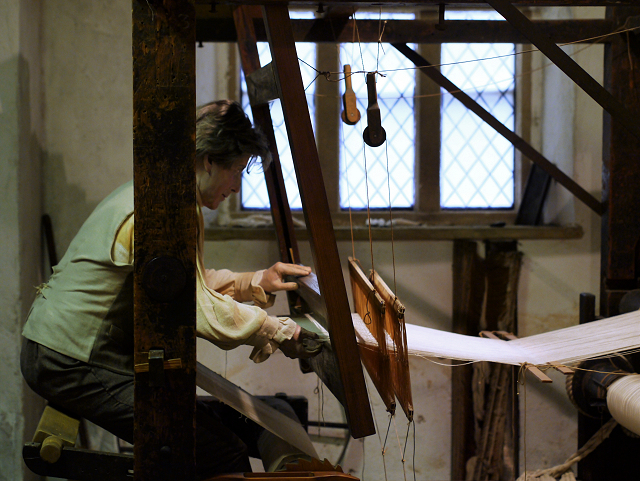
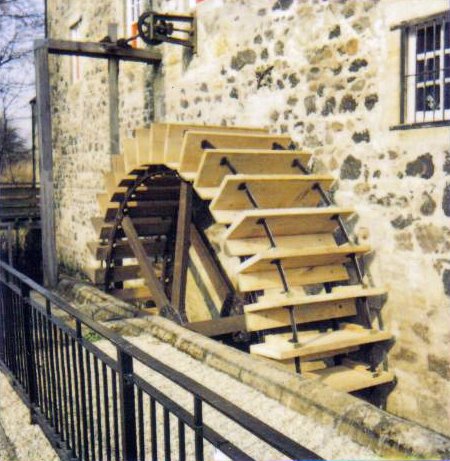
Mill Waterwheel.
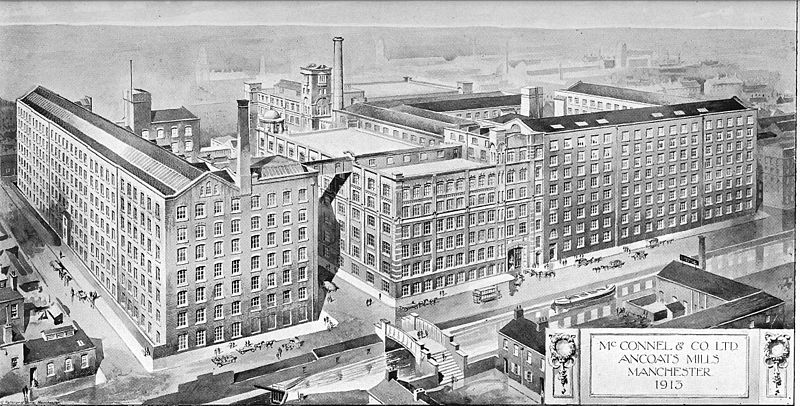
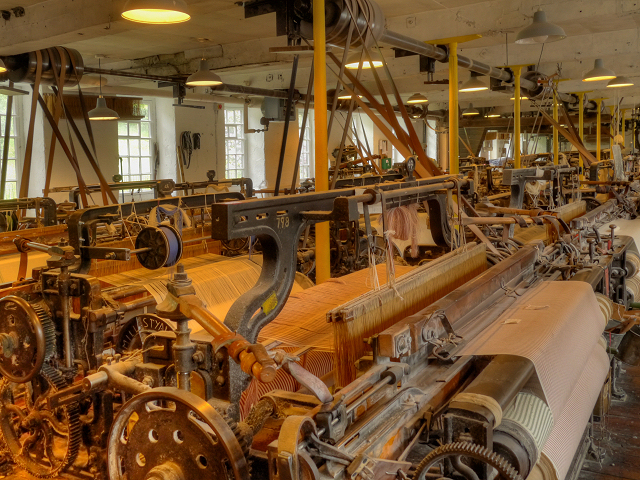
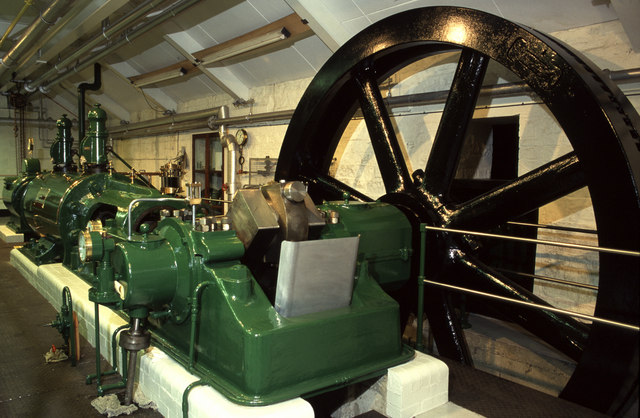
Uniflow steam engine, Bradford Industrial Museum
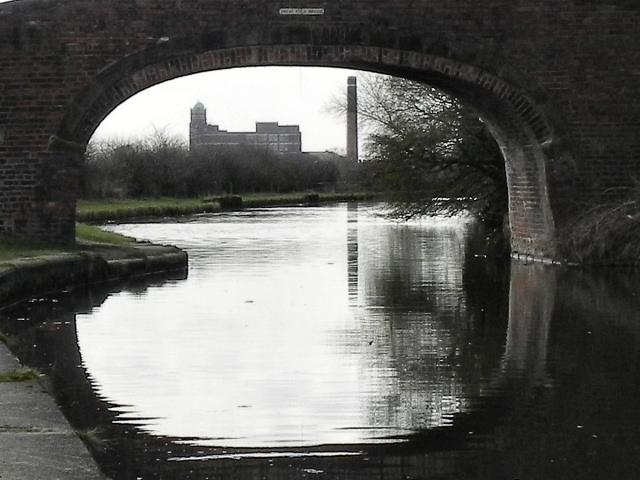
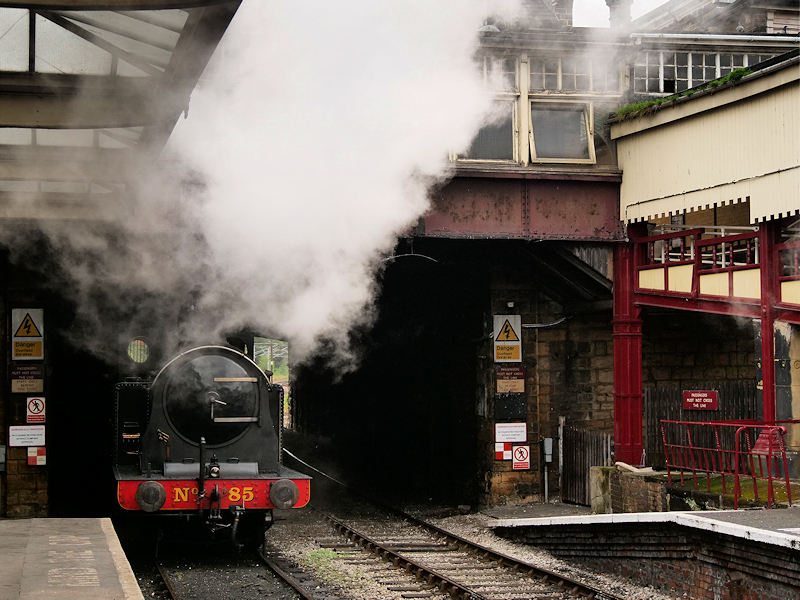
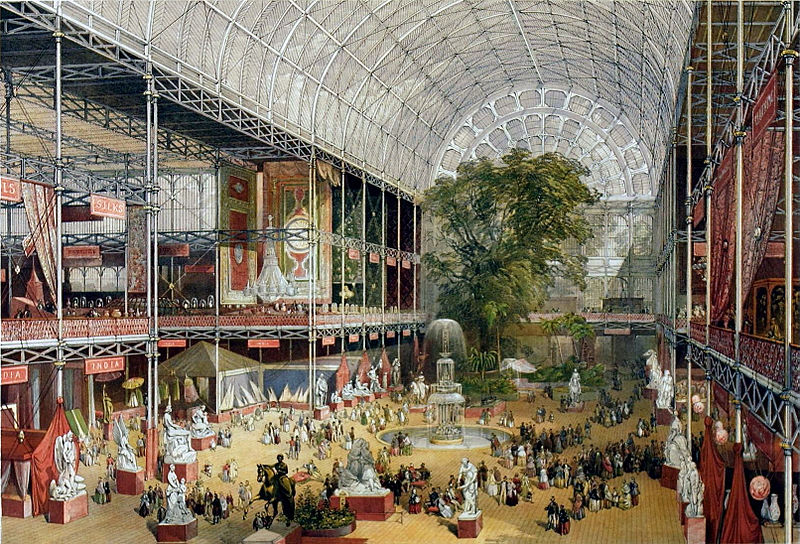
Crystal Palace interior.
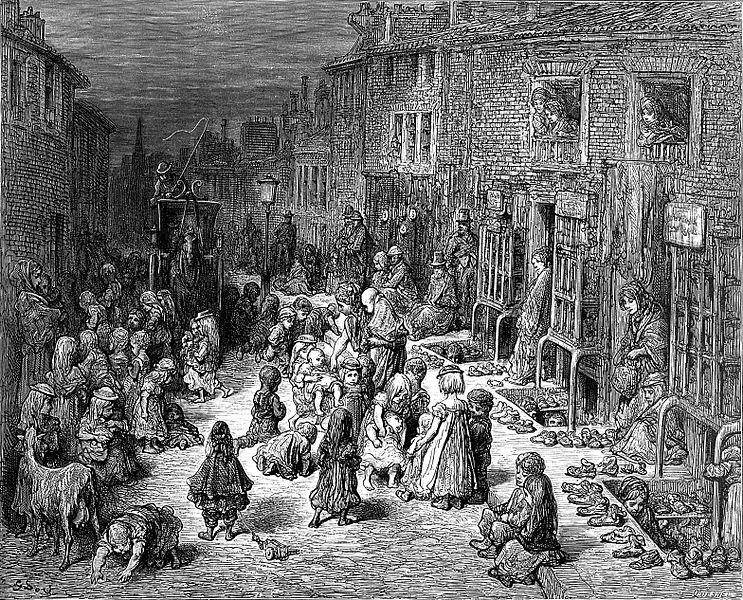
Dudley Street, Seven Dials. Poverty and slums in 1800s London.
